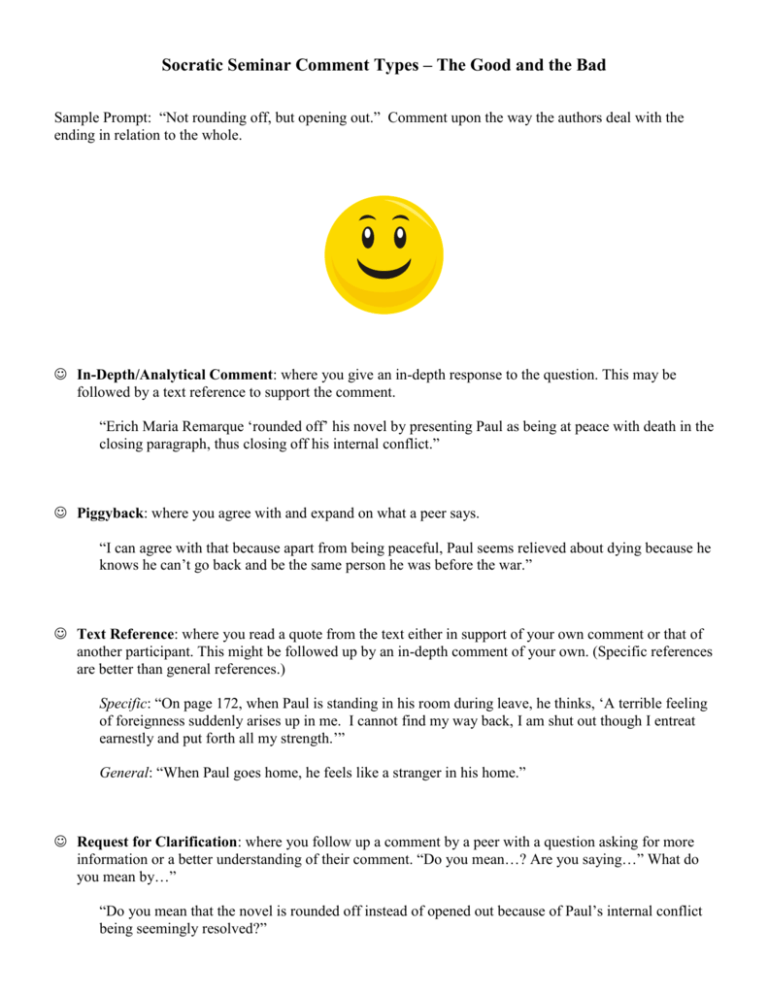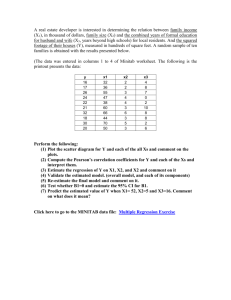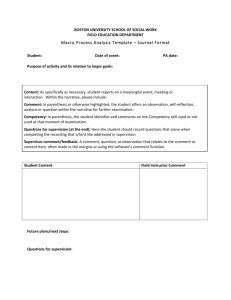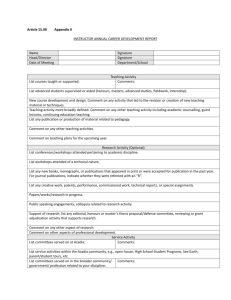Socratic Seminar Comment Types – The Good and the Bad
advertisement

Socratic Seminar Comment Types – The Good and the Bad Sample Prompt: “Not rounding off, but opening out.” Comment upon the way the authors deal with the ending in relation to the whole. In-Depth/Analytical Comment: where you give an in-depth response to the question. This may be followed by a text reference to support the comment. “Erich Maria Remarque ‘rounded off’ his novel by presenting Paul as being at peace with death in the closing paragraph, thus closing off his internal conflict.” Piggyback: where you agree with and expand on what a peer says. “I can agree with that because apart from being peaceful, Paul seems relieved about dying because he knows he can’t go back and be the same person he was before the war.” Text Reference: where you read a quote from the text either in support of your own comment or that of another participant. This might be followed up by an in-depth comment of your own. (Specific references are better than general references.) Specific: “On page 172, when Paul is standing in his room during leave, he thinks, ‘A terrible feeling of foreignness suddenly arises up in me. I cannot find my way back, I am shut out though I entreat earnestly and put forth all my strength.’” General: “When Paul goes home, he feels like a stranger in his home.” Request for Clarification: where you follow up a comment by a peer with a question asking for more information or a better understanding of their comment. “Do you mean…? Are you saying…” What do you mean by…” “Do you mean that the novel is rounded off instead of opened out because of Paul’s internal conflict being seemingly resolved?” Question: where you ask a related question or ask a peer a question designed to stimulate the conversation, develop a new avenue not yet explored, or bring the conversation back on course when it goes off topic too far. “Do you think that…? Is it possible that….? Does anyone feel that…? I was wondering if…” “Is it possible that the book is opened out due to the commentary on the soldier’s role? The conflict is resolved only because Paul dies – suggesting that is the only decent fate of a soldier who has seen and done such terrible things? Isn’t Remarque making us open out to analyzing wars in general?” Connection: where you relate the book to another book/story/movie/song, etc. “This is like Don Quixote in that the only way the main characters were able to preserve themselves was death because society wanted them to operate in a different way from the way they saw it.” Clarification Statement: where you politely correct someone who is misinformed. These are important in seminars because they help us to stay on track (and keep everyone “on the same page.”) Restatement: where you rephrase another’s idea without contributing anything new. (see in-depth or piggyback above) “Yes, he is calm when he dies like he is at peace with being able to die.” Unsubstantiated Response: where you make a generalized comment that has no supporting evidence. Paul died because he was poisoned. (Though interesting, there is no textual support for this theory.) Off-Topic Response: where you are off topic. I think Paul liked cheese. (Perhaps he did, but that has no relevance to the topic.)





